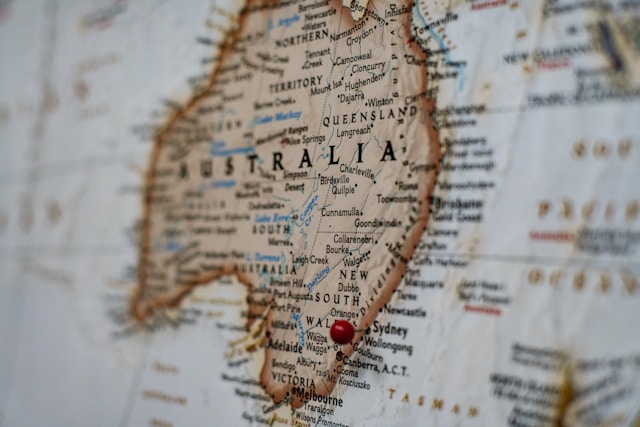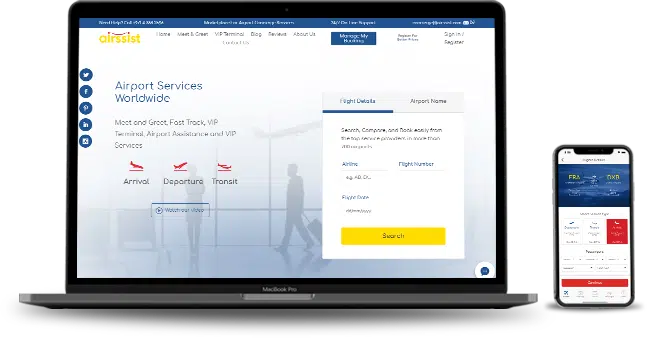Table of Contents
Visiting a country as Australia demands thorough research and careful planning. From its amazing views to its unique wildlife, Australia offers an array of experiences waiting to be discovered. However, amidst its beauty lies some complexities, including ever-changing conditions, regulations, and advisories. In this guide, we look forward to guiding you through some of the essential factors and alerts necessary for traveling Australia’s vast terrain with confidence. Additionally, well highlight the invaluable support offered by Australia VIP Airport Concierge Services by airssist for business globe trotters, ensuring that your journey transcends challenges and becomes a top success.
Factors to Consider as Travel Advice and Advisories in Australia
Personal Safety and Security
Violence and Crime
Violent crime rates in Australia are generally low, but petty crimes like pickpocketing and bag snatching are more common, especially in major cities. Vehicle break-ins are also frequent occurrences. Robberies targeting safe-deposit facilities are particularly common in budget accommodations such as hotels and hostels. To enhance personal safety:
- Keep personal belongings, including passports and travel documents, securely stowed at all times.
- Avoid leaving valuables like money, credit cards, cell phones, or electronics unattended.
- Exercise vigilance, particularly in popular tourist areas, to reduce the risk of falling victim to petty crime.
Online Scamming
Online scams targeting tourists in Australia, particularly in the area of accommodation rentals, have become increasingly prevalent. Scammers often deceive individuals into transferring funds to overseas bank accounts in exchange for lodging arrangements. To protect yourself from falling victim to these scams:
- Exercise caution when renting accommodation online, especially if the deal seems too good to be true.
- Verify the legitimacy of rental listings before making any payments.
- Be vigilant for red flags, such as requests for overseas money transfers or unusual payment methods.
Public Gatherings
In certain situations, gatherings and protests might arise unexpectedly. Even those intended to be peaceful can escalate suddenly, posing risks to safety and causing disturbances to traffic and public services. To stay safe:
- Steer clear of areas where gatherings are happening or make use of airssist’s hybrid car transport in Australia to avoid walking in such situations.
- Adhere to the guidance provided by local authorities.
- Keep tabs on local news outlets for updates regarding ongoing events.
Vigilance and Terrorism
Australia’s government takes terrorism seriously, so have a system to warn about threats. Within this framework, there exists a tangible risk of individuals or groups possessing both the intent and capacity to execute terrorist activities within Australia’s borders. Such attacks could manifest at any given moment. Potential targets encompass a broad spectrum:
- Government edifices, encompassing educational institutions
- Places of worship
- Transportation hubs, including airports and networks
- Public spaces like tourist attractions, dining establishments, cafes, shopping precincts, markets, lodgings, and other venues frequented by international visitors.
Caution with Food and Drinks
It’s essential never to abandon your food or drinks or trust strangers to watch them. Exercise caution when offered snacks, drinks, gum, or cigarettes by people you’ve just met, as they could be laced with drugs, posing a threat of sexual assault or robbery.
Safety Guidelines for Water Recreation
Engaging in water activities requires caution as coastal waters can present hazards. Riptides are frequent and potentially perilous, leading to numerous drownings annually. Additionally, various marine wildlife such as sharks, crocodiles, and jellyfish pose risks to swimmers in certain areas. To ensure safety:
- Avoid going to beaches where there are no lifeguards present.
- Follow the guidance and alerts given by lifeguards on duty.
- Pay attention to the flag warning system, which signals water conditions and safety risks at beaches.
For diving and snorkeling
- Ensure you complete a medical declaration before engaging in the activity.
- Stay updated with the guidance and alerts provided by local authorities.
Stay informed and prioritize safety while enjoying water recreation in Australia.
Precautions for Hiking and Climbing
Summers in certain areas can be dry and hot, so it’s crucial to prepare accordingly. When planning trekking or mountaineering activities:
- Always seek the assistance of an experienced guide from a reputable company rather than venturing out alone.
- Invest in travel insurance that includes coverage for helicopter rescue and medical evacuation.
- Assess your physical readiness for the challenges ahead before setting out.
- Equip yourself appropriately and stay updated on possible weather risks.
- Inform a trusted individual of your itinerary, including your anticipated return time.
- Prior to your trek, gather comprehensive information about the routes and adhere to marked trails strictly.
Considerations for Traveling in Rural Areas
Certain parts of Australia’s interior are sparsely populated and remote, lacking in services.
When traveling to these areas by car, you might encounter challenges in accessing sufficient mobile phone coverage. This is especially critical if you are traveling for oil & gas industry projects. In such instances it would be wise to seek Executive Protection for High Risk Travel for Oil & Gas Industry. To enhance safety in rural areas:
- Refrain from solo travel.
- Consult professional for executive terminal access
- Inform family members of your travel plans and itinerary.
Safe Driving and Travel
Australia boasts generally good road conditions and safety standards nationwide. However, exercising caution, particularly when driving in rural areas at night, is essential. Speeding drivers, roaming animals, and road trains can pose additional risks. Given the vast distances and isolation of many outback regions:
- Avoid driving in extreme heat conditions.
- Plan your overland journey.
- Share your travel plans with a friend or relative, ensuring your vehicle is well-maintained.
- Carry essential items like a first-aid kit and personal medication.
- Ensure you have enough fuel, water, and food supplies for the journey.
- Consider bringing a satellite phone or emergency beacon for communication in remote areas.
Travel Entry and Exit Guidelines
The information provided here is sourced from Australian authorities but is subject to change without notice. It’s advisable to verify this information with the Foreign Representatives in Australia and relative countries like Canada.=
Passport Requirements:
- Entry requirements depend on the type of passport you hold.
- Prior to travel, confirm passport requirements with your transportation provider, as their rules may be stricter than the destination country’s.
Passport Types:
Regular passport:
- Must be valid on the day of entry into Australia.
Passport for official travel:
- Different entry rules may apply. If you’re not an Australian citizen, you must have a valid Australian visa to enter the country. New Zealand passport holders can obtain a visa upon arrival. However, all other passport holders, regardless of age, must apply for a visa before departing from their home country.
Passport with “X” gender identifier:
- For instance, while Canada issues passports with an “X” gender identifier, some countries may not recognize it. Check with Australian representatives before departure.
Pre-Planning with Entry Vaccines to Australia
Before traveling to Australia, it’s crucial to consider necessary vaccinations for a safe journey. Recommendations from the CDC and WHO include vaccinations for hepatitis A, hepatitis B, yellow fever, Japanese encephalitis, rabies, meningitis, polio, measles, mumps, and rubella (MMR), Tdap (tetanus, diphtheria, and pertussis), chickenpox, shingles, pneumonia, and influenza.
Healthcare Coverage for Overseas Visitors in Australia
For overseas visitors to Australia whether on a business trip or another, Medicare eligibility is generally not applicable. This means visitors are responsible for covering the full cost of public hospital services unless they have private health insurance. While some may be covered under Reciprocal Health Care Agreements (RHCAs), these agreements do not encompass all healthcare services. It’s advisable for visitors to obtain private health insurance to safeguard against unexpected healthcare expenses while in Victoria, and elsewhere in Australia.
Reciprocal Health Care Agreements (RHCAs)
These allow visitors from certain countries to receive Medicare benefits for essential treatment while in Australia. However, coverage varies, and only essential medical treatment is included. Visitors should still consider private health insurance to mitigate potential expenses not covered by RHCAs.
- Medicare benefits under RHCAs: Visitors from Belgium, Finland, Ireland, Italy, Malta, Netherlands, New Zealand, Norway, Slovenia, Sweden, and the United Kingdom can access essential medical treatment.
- Limitations of RHCAs: Not all healthcare services are covered, and some RHCAs may not apply to visitors on student visas.
- Private health insurance: Overseas visitors should strongly consider obtaining private health insurance to ensure comprehensive coverage during their stay in Australia.
Drug Laws and Travel Guidelines
- Australia imposes severe penalties for possession, use, or trafficking of illegal drugs, including lengthy jail sentences and hefty fines.
- Strict regulations govern the importation of food and animal products, with detailed information available from Australia’s Department of Home Affairs.
- Traffic flows on the left side of the road in Australia.
- Overseas driving licenses are accepted if the names on the license match those in your passport exactly.
- If staying in Australia for more than three months, you must apply for a local driver’s license.
- Permits are necessary for traveling on Aboriginal territory.
- It’s advisable to carry an international driving permit.
- Dual citizenship is legally recognized in Australia, though it may affect consular services and entry/exit requirements.
Steer Clear in Australia with airssist
When traveling to a country like Australia, unfamiliar territory can be stressful, especially without local expertise and support. That’s where airssist comes in. With our top-notch services like airport concierge, meet & greets, VIP terminals, and limo transfers, even for large groups, airssist takes care of every detail of your trip. From ensuring safety to handling all barriers beforehand, airssist ensures a stress-free experience, allowing you to focus on enjoying your journey without worry.
Note: Please note that the information on this page is generic & subject to change due to fluctuations in airport services. Kindly confirm service availability with our team, as offerings may vary daily.
 French | Français
French | Français Spanish | Espana
Spanish | Espana German | Deutch
German | Deutch Arabic | العربية
Arabic | العربية Chinese | 中文(简体)
Chinese | 中文(简体)  Japanese | 日本語
Japanese | 日本語 






